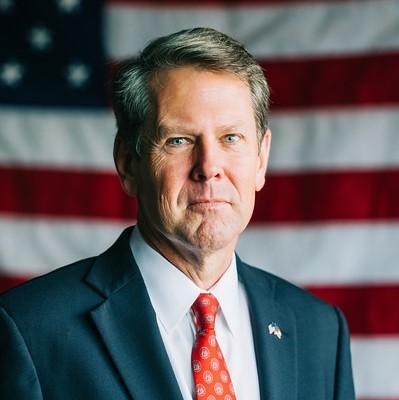
Section Branding
Header Content
Georgia Today: Tax relief for seniors; Autonomous vehicles; Public Service Commission public comments
Primary Content
On the Wednesday, May 21 edition of Georgia Today: Atlanta housing authority is offering 20 years of property tax relief to seniors; an autonomous vehicle company is coming to Georgia; does the state's Public Service Commission actually consider what people say during public comment periods?

Peter Biello: Welcome to the Georgia Today podcast. Here, we bring you the latest reports from the GPB news team. On today's episode, Atlanta Housing Authority is offering 20 years of property tax relief to seniors. An autonomous vehicle company is coming to Georgia. And does the state's public service commission actually consider what people say during public comment periods?
Tim Echols: I don't add up the comments. "Okay, let's see, 50 said this and 70 said that and 90 said this." That is not how I set public policy.
Peter Biello: Today is Wednesday, May 21. I'm Peter Biello, and this is Georgia Today.

Story 1:
Peter Biello: A 19-year-old North Georgia college student who had been in immigration detention for more than two weeks has been granted bond and will go home. GPB's Grant Blankenship has more.
Grant Blankenship: Ximena Arias Cristobal was detained by Immigration Customs and Enforcement after she landed in the Whitfield County Jail, but before the Dalton Police Department dropped the traffic charge against her. Now she'll be released by ICE on the lowest bond an immigration judge can set. Dustin Baxter represents Arias-Cristobal, who was brought to the U.S. when she was 4. He says before detention she had no path to legal status. Now her hopes rest with her father, who also just left detention.
Dustin Baxter: If he can prove to a judge that he's been here for more than 10 years, he's been a person of good moral character, and he's got U.S. citizen children, who would suffer exceptional and extremely unusual hardship if he was removed, then he could be granted permanent resident status.
Grant Blankenship: Than his daughter would, too. For GPB News, I'm Grant Blakenship.
Story 2:
Peter Biello: Next week, the Georgia Public Service Commission will resume negotiations with Georgia Power on their new integrated resource plan. The IRP is how Georgia Power describes the mix of ways it will produce electricity for its customers. Over the years, hundreds of concerned citizens have asked Georgia's Public Service Commission during public comment periods to approve IRPs by Georgia Power only if they rely more on renewable energy and less on fossil fuels. But the five-member elected body has consistently voted for Georgia Power plans that continue reliance on fossil fuels. And that has led some to wonder, what is the point of public comment periods if our elected leaders don't seem to be listening? Reporters Kala Hunter of the Columbus Ledger Inquirer and Margaret Walker of the Macon Telegraph have been reporting on this and they're with me now. Welcome to the program.
Margaret Walker: Hi, thanks for having us.
Kala Hunter: Thanks Peter.
Peter Biello: I'll start with you, Margaret. In your reporting, you've looked at how many people have made comments and what, broadly speaking, those people were speaking for or against. What did you find in the numbers?
Margaret Walker: We looked at — Kala can confirm — it was close to 900 comments. Was that right, Kala?
Kala Hunter: Yeah, the numbers ended up being about 42% of the almost a thousand comments expressed concern over using fossil fuels in the energy mix for the last two Georgia Power integrated resources plan. That was like 419 out of almost 1,000 comments.
Margaret Walker: And those concerns came in the ways of concern for their health, concern for the environment, concern about climate change, concern about future generations. The concerns came many different forms and we looked into all of those different categories.
Peter Biello: And it seems as though at least on first glance that those preferences are not finding their way into the vote outcomes of the PSC. You've spoken to some members of the Public Service Commission. What have they said when confronted with the accusation that they may not be listening to that 42%?
Margaret Walker: The public service commissioners told us that they first care about safety, reliability and cost. And then they look at sustainability as kind of like a fourth consideration, but those three things come first to them. And they did say that they read all of the public comment. They said, if people reach out to us, then we read it or we listen to it. When it came to voting, they still voted in favor of the heavily reliant fossil fuel plan.
Peter Biello: Hmm, because that, I guess, is safer in their view or more cost-effective?
Kala Hunter: Yeah, I mean, one of the commissioners said, look, like, the concerns aren't as —I would say they more so dismissed the level of people that are concerned. You know, they said, look, like, those are just small pockets of concerns. Those aren't what you think they are. And we actually did the numbers and found, you know, 42%, which I would argue is bigger than a small pocket of concern. But they have — we could go into a lot more detail about their reasoning for voting the way they voted. A big claim they like to use is having a diverse energy mix.
Peter Biello: Recently, GPB's Grant Blankenship spoke with a PSC member, Tim Echols, and asked him about whether or not the voice of those showing up at public hearings, public comment periods, periods of being heard. And here's what he had to say.
Tim Echols: I don't add up the comments. "Okay, let's see, 50 said this and 70 said that and 90 said this." That is not how I set public policy. I set up public policy based on judgment. That's how I set public policy, I'm not just taking some kind of poll out here and making a decision based on a poll.
Peter Biello: And he also told Grant Blankenship a few things, that some of the young people who raised the loudest objections recently were from out of state. And the other thing he said was that he simply knows more, that as a member of the PSC, he has access to information that the public doesn't. And that's what he's making his decisions based on. I wanna ask both of you what you make of his argument. We'll start with you, Kala.
Kala Hunter: Well, I think what Grant is getting at is sort of like, well, how do you assess what to consider? And how do essentially do your job? And if Echols is saying that his job isn't to sort of count public comments or make tallies, it begs the question, well, what's the point of the public comments? What's the point the process? So I mean, I think Echols' comment is obviously a very, sort of — I think he's kind of running around the question of the purpose of of the comments and why the plans continue to include energy sources that have proven time and time again to be harmful to public health and the stability of our planet and ecosystems.
Peter Biello: Margaret?
Margaret Walker: I will say this about Echols. I think when we looked at how the commissioners, aside from public comment, are gathering information about what their constituents — Echols is an involved commissioner. So he goes to, I would argue, the most out of all of the commissioners' public meetings and events, interacting maybe with the most people in the public. However, what is the point of having a public comment forum if you're not considering it? Is it just a formality or is it actually being considered?
Peter Biello: Well, in their defense, they're not saying that they're not considering it. It's just not outweighing other things that they have said are more important, right?
Margaret Walker: Right, right.
Peter Biello: The members of the PSC seem then to be citing their impression of a silent majority versus a vocal minority. And so I'm wondering, how is this different from any other public body where, you know, loud yet relatively smaller groups show up at meetings of democratically elected governing bodies, whether it be like school board or a city council. And they don't always get what they want. How is this different?
Kala Hunter: I think it's different because the Public Service Commission's role is to — I'll actually quote the purpose of the integrated resource plan: "the overall objective of the plan should be based on current commission policy concerning minimizing customer bills, minimizing overall rates and maximizing net societal benefit." So, I would say incorporating, what, 42% of the society that's paying the bills, maximizing their societal benefit would be an important thing to consider given that they are, you know, they are paid public officials and our tax dollars pay for their roles and that's really their job is to sort of be in this position of both judgment and decision making and hearing out all of the different voices of Georgia Power customers.
Peter Biello: Climate reporters Margaret Walker with the Macon Telegraph and Kala Hunter of the Columbus Ledger Inquirer. Thank you so much for speaking with me.
Kala Hunter: Thank you, Peter.
Margaret Walker: Thanks for having us.
Peter Biello: And if you want to make a comment on the next integrated resource plan, the Georgia Public Service Commission is holding hearings next week. You can also make comments through the PSC's website. The PSC is expected to make a final decision on the Georgia Power IRP by mid-July.

Story 3:
Peter Biello: Meanwhile, Gov. Brian Kemp is throwing his support behind a proposed rate freeze for Georgia Power customers. GPB's Sarah Kallis reports.
Sarah Kallis: Kemp says the deal negotiated between Georgia Power and the Public Service Commission is good for consumers and businesses in the state.
Brian Kemp: That kind of long-term thinking is shared by our utility partners, and that's why energy in the state of Georgia is so reliable, plentiful, and will remain so for decades to come.
Sarah Kallis: But energy rates are only one piece of your energy bill. So while rates will hold steady through 2028, consumer bills could still go up next year due to the cost of cleanup for Hurricane Helene or depending on how the PSC manages the expansion of power-hungry data centers. The announcement comes about a month before the primary PSC elections scheduled for June 19. For GPB News, I'm Sarah Kallis at the state Capitol.
Story 4:
Peter Biello: The nation's largest public power company, the Tennessee Valley Authority, is asking federal regulators for a permit to build a small nuclear reactor. The federally owned utility provides electricity to seven states, including parts of North Georgia. The TVA says it submitted a construction permit application to the U.S. Nuclear Regulatory Commission. It's the first time in the U.S. that a utility is asking regulators to build a small reactor. The utility says it wants to develop next-generation nuclear power in Oak Ridge, Tenn., at its Clinch River site.
Story 5:
Peter Biello: Atlanta Housing Authority is offering 20 years of property tax relief to seniors to help them age in place, but as GPB's Amanda Andrews reports, the deadline to apply is coming up.
Amanda Andrews: The Anti-Displacement Tax Relief Fund is open to residents over 60 making less than $48,000 a year who have lived in Atlanta since at least 2015. It freezes residents' property taxes and funds any increase for the next 20 years. Atlanta City Council candidate Wayne Martin says this tax relief helps the community grow.
Wayne Martin: Because it welcomes and invites new residents to move in. It welcomes an invites new commercial development without adding shock value to our senior citizens who have fixed incomes and do not experience rising incomes at the same level as younger residents.
Amanda Andrews: The initiative is a partnership between the city and Invest Atlanta. The deadline to apply is May 31. For GPB News, I'm Amanda Andrews.
Story 6:
Peter Biello: A construction worker has been killed in a workplace accident at the Bryan County megasite in Southeast Georgia, home to the newly opened $8 billion Hyundai vehicle assembly plant. The accident happened yesterday at HLGA Battery, a Hyundai affiliate expected to manufacture batteries for the plant. The Bryan County Sheriff's Office said an unsecured load fell off a forklift, fatally striking a worker on the ground. In a statement, Hyundai extended its condolences to the family of the worker, whose name has not been released. GPB has reached out to the U.S. Occupational Safety and Health Administration to ask if an investigation into the death has been launched, but we have not heard back from the agency as of this recording. It's the second fatal forklift accident at the megasite since March.
Story 7:
Peter Biello: The U.S. Army Corps of Engineers is closing two dozen parks and campgrounds in Georgia because of staffing shortfalls. The agency said today the closures affect recreation areas around Lakes Lanier and Allatoona, north of Atlanta, and Walter F. George and George W. Andrews in Southwest Georgia. The announcement comes ahead of Memorial Day weekend, traditionally the start of summer lake season and economic driver in many communities. It's unclear if the parks and camps could remain open under state or local management.
Story 8:
Peter Biello: Amazon-owned autonomous vehicle company Zoox is coming to Atlanta. The company said yesterday it will deploy a small number of its testing fleet to downtown Atlanta. It says Atlanta's growing technology sector, diverse road conditions, and unique weather conditions make the city a good place to launch its vehicles. The city has already seen autonomous vehicles. Waymo has been testing its self-driving taxis, and the company says they'll be available to Atlanta customers soon through the Uber app.
Story 9:
Peter Biello: In sports, the Braves faced the Nationals in Washington again tonight for the second of a four-game series. Spencer Strider made his return to the mound last night after his second stint on the injured list. He gave up four earned runs in 4 1/3 innings. AJ Smith-Schauver is scheduled to start tonight for Braves.

Story 10:
Peter Biello: In this final note, the police department in Southeast Georgia's Hinesville reminded residents on social media today that getting out of your vehicle while in the middle of a busy highway is a dangerous and yes, illegal act. Why would the city's finest need to tell people that? Well, this morning on Highway 196, police said it looked like the opening scene of a heist movie with cash flying through the air and people hopping out of their cars thinking they just hit the jackpot. It turns out someone lost a bag full of "motion-picture-use-only" money: fake $100 bills that came off the back of a truck. The phony Benjamins covered the road, and then, well, motorists became interested. Officers managed to clear the rogue bills from the highway, but they also reminded residents who might have snagged one before they did so that trying to pass movie prop bills as real money is a felony.
And that's it for this edition of Georgia Today. If you wanna learn more about any of these stories, check out GPB.org/news, and come on back tomorrow. We hope you will, there's more news to be heard. Subscribe to this podcast, that's the best way to do it. And send us your feedback as well. If you've got any, the email address to use is GeorgiaToday@GPB.org. I'm Peter Biello. Thanks again for listening. We'll see you tomorrow.
---
For more on these stories and more, go to GPB.org/news



